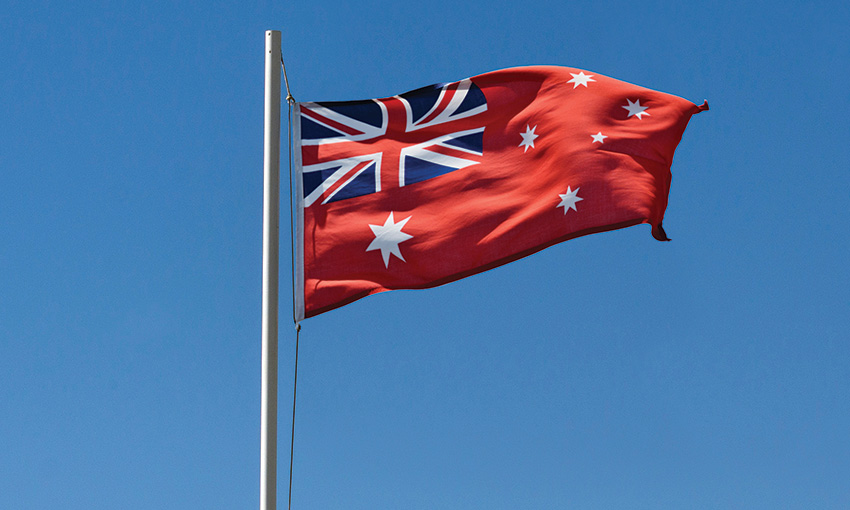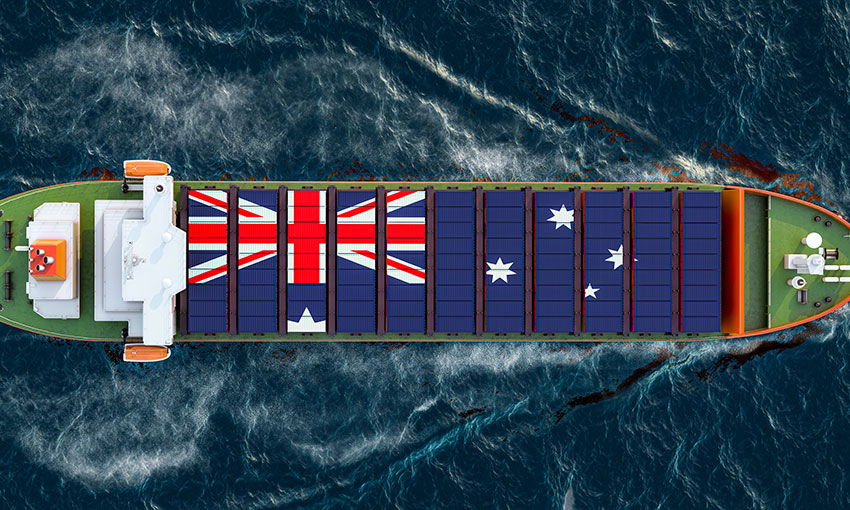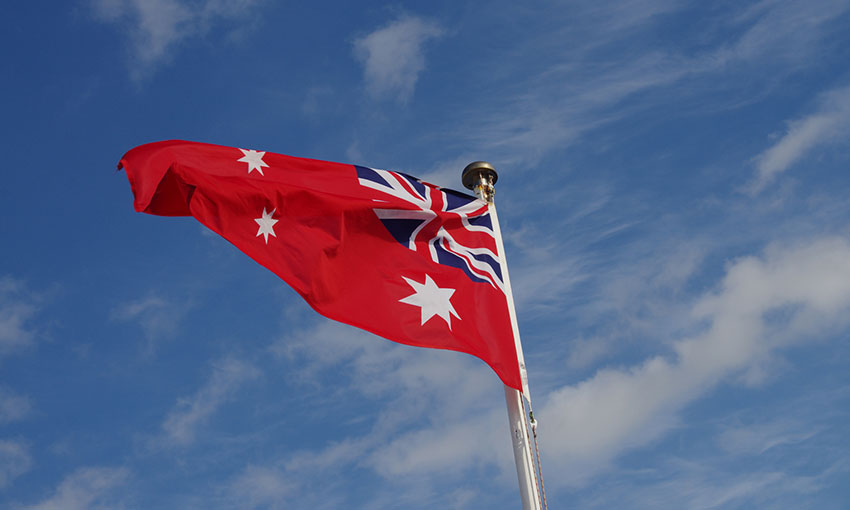THE FEDERAL government has today (20 October) appointed a new taskforce to guide the establishment of a strategic maritime fleet.
The proposed strategic fleet will be made up of Australian-flagged and crewed vessels. The government says the goal of the fleet is to strengthen Australia’s economic sovereignty and national security.
Prime Minister Anthony Albanese proposed the establishment of a strategic fleet in January of this year. The concept sparked a robust debate across the maritime industry around the time of the 2022 federal election.
The discussion has continued throughout much of 2022 but was refuelled by Productivity Commission’s draft report into Australia’s maritime logistics system, released in September this year.
The Productivity Commission has concerns around domestic shipping capacity and training may be better resolved by means other than a strategic fleet, a view rejected by some industry representatives but supported by others.
The newly appointed Strategic Fleet Taskforce will guide the government on how to establish Australia’s fleet as quickly as possible and provide advice on what legislative or regulatory reforms are necessary to support the Strategic Fleet and Australian shipping.
John Mullen will chair the taskforce. He is to bring experience in international transportation and logistics and more than two decades in senior positions with large transport and infrastructure companies.
Mr Mullen spent more than five years as managing director and CEO at Asciano between 2011 and when the company disbanded in 2016. Previously, he was in executive roles at DHL and TNT Express Worldwide. He has served on the boards of Brambles, Toll Group and Telstra.
Maritime Industry Australia CEO and shipping policy specialist Angela Gillham will also be providing expertise to the taskforce, along with Maritime Union of Australia national secretary Paddy Crumlin and Woodside Energy’s Sarah Ryan.
Ms Ryan worked at oilfield services giant Schlumberger between 1990 and 2005, and subsequently held positions on numerous boards of energy and logistics companies, including Viva Energy, Aurizon, Oz Minerals and Woodside.
Major-General Jason Walk from the Department of Defence, a senior military officer with wide-ranging command, leadership and management experience will also be on the taskforce.
Catherine King, minister for Infrastructure, transport, regional development and local government, said the government is moving quickly to deliver on the establishment of the strategic fleet.
“Establishing a strategic fleet made up of Australian-flagged and crewed vessels was a key commitment of our government during the election,” she said.
“Australia relies on shipping to support our economic and social wellbeing, with an incredible 99% of the volume of our goods trade moved by sea.
“It is essential that we make sure Australia continues to have a robust supply chain so we get food, fuel, medical supplies and other critical cargo to support Australian industries, the community and protect our national interest.
“I look forward to working with the taskforce as they advise on how we best make this happen.”
And Ms Gillham of MIAL told DCN the taskforce will provide a strong base of expertise for the establishment of the fleet.
“[MIAL’s] involvement relates to providing the shipping industry perspective on the taskforce discussions,” Ms Gillham said.
“The taskforce is … drawing from expertise in the cargo space, so Dr Sarah Ryan has a lot of experience in the oil and gas industry, and Paddy Crumlin from the MUA will be providing that workforce input, and we’ll be providing input around the operation of a shipping business and what our members need in order to compete with foreign interests.
“I think the defence logistics aspect too will be really important to feed into that supply chain security [and] national disaster relief, all those things that have become so apparent as vulnerabilities for Australia over the last five years.
“It’s really pleasing to see that that element is part of the discussion as well.”
In an official statement from MIAL, Ms Gillham said the strategic fleet would also provide jobs for highly sought-after maritime skills and economic stimulus to the nation.
“Our recent Seafaring Skills Census found the Australian maritime sector has a projected shortage of 560 seafarers by 2023, a large proportion of which is in the Deck and Marine Engineer Officer skill sets,” she said.
“For the Albanese Government to achieve its election commitment of the vessels being Australian flagged and Australian crewed, regulatory reforms are needed now to provide better training opportunities for seafarers to get the skills they need to crew the Strategic Fleet.
“I look forward to working with Minister King and my Taskforce colleagues to find a solution to this problem, which is vital to the success of the Strategic Fleet and ensuring our supply chain and civil maritime security.”
But Shipping Australia cautioned against the development of a national fleet, arguing that many of the policy goals put forward for the development of a national fleet can be achieved at a lower cost by other methods or do not stack up.
“Workforce skilling can be addressed through education, training, cadetships on globally trading vessels, and immigration,” a SAL spokesperson told DCN.
“The depth of diversity in terms of cargoes, ship types, ship owners and operators, crews, and routes (among other things) are what delivers resilience to external shocks.
“Fuel security arguments do not stack up as we are entering a transition in energy sources and it is extremely likely that Australia’s future energy needs will be met by electrification, domestic renewables and domestically produced fuels such as liquid ammonia and hydrogen.
The SAL spokesperson said job-creation arguments are rebutted by history as nationalist shipping policies have caused Australian seafarers to be thrown out of work and Australian manufacturing plants to shut down with everyone losing their jobs.
“Economic arguments don’t stack up either, as analysis shows that national shipping policies tend to cause more economic harm than benefits,” the spokesperson said.
“Security arguments are unsupported by evidence, as international shipping can and has delivered the goods despite floods, fires, strikes, plagues, terrorism, and war.”
The Strategic Fleet Taskforce will meet later this month to kick-start the work.
It plans to deliver its advice to government in two phases, with the first phase to report on high-level strategic objectives by the end of the year.
During this phase, shipping, maritime and other stakeholders will be able to make submissions to shape the vision for a strategic fleet through an open public consultation process.
This will be followed by a second phase to identify ships options and other needs for a strategic fleet of up to 12 vessels, expected to be complete by June 2023.



